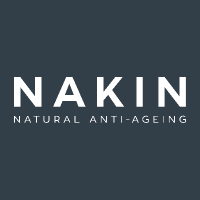Is a Vegan Diet Bad for My Skin?

With the huge rise in veganism it is now easier than ever to become vegan, as the choice available is so much more than ever before, and alongside this is our knowledge of the nutrients that help our bodies to work and function properly. Our skin is a huge part of our body and actually our largest organ, it is also the area of our body that many of us want to take care of the most as it is such a huge reflection of ourselves. You could be using the best skincare like our natural anti-ageing face products, but the internal nutrients that we ingest also play a huge role in skin health.
If you are vegan, or are thinking of becoming vegan, or have a family member that has a vegan diet, then it is only right to look into the effects of this and how best to manage this limited diet. One of the questions that naturally comes up a lot is if a vegan diet is bad for skin, and how it can affect it. Read on to find out more about this.
Adopting a good vegan diet can have profound effects on our skin, often reflecting the internal health benefits of this plant-based lifestyle. Rich in vitamins, minerals, and antioxidants, a vegan diet can help nourish the skin, potentially reducing signs of ageing and promoting a glowing complexion. The high intake of fruits, vegetables, nuts, and seeds ensures an ample supply of nutrients like vitamin C, vitamin E, and beta carotene, which are vital for skin health and resilience. Additionally, the elimination of dairy, often implicated in exacerbating acne and other skin conditions, may lead to clearer skin. However, it's essential to ensure a balanced and varied vegan diet to avoid nutritional deficiencies that could negatively impact skin health.
To thrive on a vegan diet, it's crucial to incorporate a variety of nutrients that support overall health. Key nutrients include:
- Protein: Essential for muscle repair and growth, sources include lentils, chickpeas, tofu, quinoa, and nuts.
- Vitamin B12: Vital for nerve function and blood formation, often supplemented or found in fortified foods.
- Iron: Important for blood health, found in lentils, chickpeas, beans, tofu, and fortified cereals.
- Calcium: Needed for bone health, available in fortified plant milks, tahini, kale, and almonds.
- Omega-3 fatty acids: Support brain health, sourced from flaxseeds, chia seeds, walnuts, and hemp seeds.
- Vitamin D: Important for bone health and immune function, available through fortified foods and sun exposure.
As we age, our skin can start to show signs of wear and tear. Fine lines, wrinkles, and dullness may become more apparent. By following a vegan diet, you may be able to slow down the ageing process and maintain a youthful appearance. The high levels of antioxidants found in plant-based foods can help protect against free radical damage, which is often responsible for premature ageing alongside sun damage. These antioxidants can also boost collagen production, which helps keep skin firm and elastic. Additionally, a vegan diet may also aid in maintaining a healthy weight, reducing the risk of obesity-related skin conditions such as stretch marks and cellulite.
In addition to nourishing the skin from within, a vegan diet can also be beneficial for external skincare. Many vegan-friendly products like the ones in our range are cruelty free and free from harsh chemicals like parabens and artificial ingredients such as silicones and colour, making them gentler on the skin. Most of our face products are vegan, with the exception of our lip treatment balm. Our products use natural ingredients such as plant actives, oils, botanical extracts, and natural skin enhancers which can provide amazing benefits to the skin.
Furthermore, choosing a vegan lifestyle can also contribute to overall environmental and ethical well-being. By eliminating animal products from your diet and skincare routine, you are reducing your carbon footprint and supporting cruelty-free practices. The production of animal-based products often involves harmful chemicals and unsustainable farming practices, which can have negative impacts on the environment.


Leave a comment